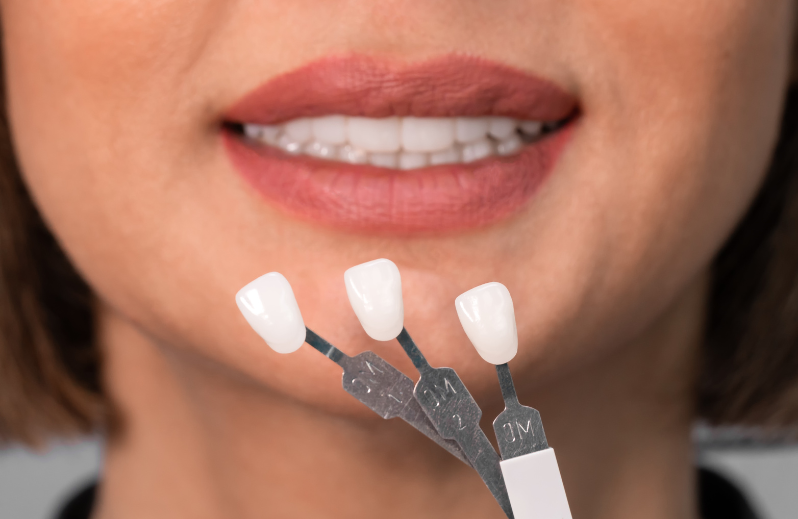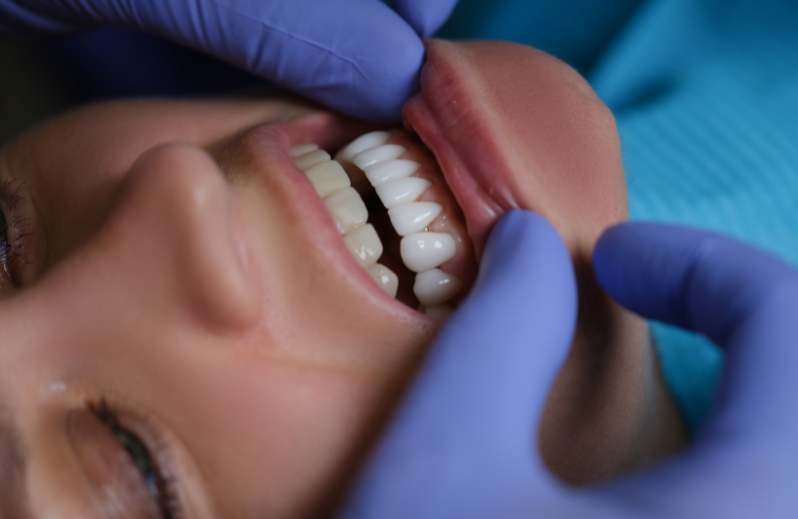How Long Do Dental Veneers Last?

Dental veneers are one of the most sought-after cosmetic dental treatments for a perfect smile. Veneers offer a permanent and natural solution. It can address discoloration, chipped teeth, and mild misalignment. However, many patients ask one crucial question before spending money on their smile: How long do veneers last? In this blog, a cosmetic dentist discusses the average lifespan of veneers. You will also learn how to take the best care of them and the factors that determine their strength.
Understanding Dental Veneers
Veneers are very thin shells that cosmetic dentists place in front of patients’ teeth to hide multiple imperfections. You will mostly find two types of veneers: porcelain and composite. Dentistry professionals generally use a special adhesive to attach them in front of the teeth. Veneers can effectively hide stains and discolourations. It can also correct the shape and size of your teeth. Veneers can also correct minor misalignments of teeth. They can also eliminate the gaps between your teeth. Do you know why veneers are so popular? They offer quick and excellent results, and the application process is minimally invasive and painless.
The Longevity of Dental Veneers?
Have you been looking for the answer to this question for a while? The life of veneers tends to depend on multiple factors. Porcelain veneers are hugely popular among patients as they can even last over two decades if you take good care of them. On the other hand, composite veneers generally last around 5-7 years. Enhanced looks, longevity, and strength are the factors that make porcelain veneers slightly expensive than the composite ones.
Veneer Lifespan: Factors to Consider
Any cosmetic dentist in Kyle will indicate that several factors can affect a veneer’s lifespan:
Habits of Brushing and Flossing
It is not only about brushing and flossing twice daily, but you should also follow proper techniques. Gum disease and decay will stay away, and they can damage your veneers.
Quality of Materials
High-quality porcelain provides better durability. They are also known for showing greater resistance to staining than composite resin.
Bite and Chewing Pressure
Avoid biting into tough substances while you use veneers. It can cause severe damage to your veneers.
Dental Visits
Ensure you visit your dentist once every six months to detect any underlying issues that might develop easily.
Personal Habits
Smoking or drinking dark-colored drinks like coffee and red wine can stain composite veneers and impact their appearance.
Tips to Make Your Veneers Last Longer
To get the most out of your dental veneers, use these expert-approved tips:
- Ensure that you use a soft-bristled toothbrush and non-abrasive toothpaste.
- Never forget to use a nightguard if you grind your teeth at night.
- Avoid chewing on hard objects or foods.
- Restrict contact with staining agents such as red wine and tobacco.
- Plan for routine dental cleanings and check-ups.
When Should Veneers Need to Be Replaced?
No matter how well-made veneers are, they won’t last indefinitely. As time goes on, you might find:
- Chips or cracks in yoour venneers
- Discoloration is also familiar with time
- Gum recession next to the veneers
- A loose or missing veneer
When this occurs, your cosmetic dentist can evaluate whether you require a quick fix or total veneer replacement.
Long-Lasting Smiles Begin With Proper Care
Dental veneers can effectively serve your purpose for years to come. Following the above-discussed tips can be of great help. Just like the experience and skills of your cosmetic dentist matter, adequate aftercare also plays an essential role in extending the lifespan of veneers. The exact lifespan of your veneers can depend on various aspects, including your oral care habits and the quality of material that you are opting for. Veneers can be worth your investment if you stay committed to your oral health.







